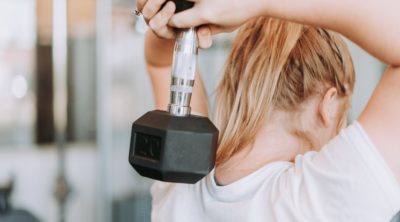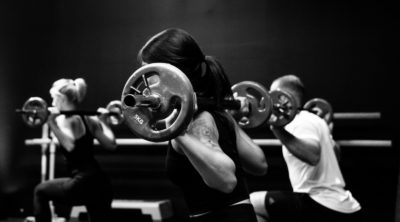
Muscle twitching after exercise is not an uncommon issue with people who are involved in various kinds of workouts. This article uncovers some of the most basic facts about this condition.
Also known as benign muscle fasciculation, muscle twitching that occurs post exercise is marked by fine movements in muscles in certain areas of the body. These movements manifest themselves as rapid contraction and relaxation, visible enough to be taking place under the skin. The twitching may occur in any part of the body, but most commonly, the limbs are affected. Also, exercises are known to be the most common trigger, however, there might be other causes too. The good news is, in most cases, the condition does not give rise to any life-threatening situations or concerns.
How do Exercises Cause Muscle Twitching?
People who are into regular aerobic exercises, especially on a high intensity level, may find their muscles to twitch more often after they resume a restful position post workout. For instance, twitching of leg muscles is common with people who go for trail running and power hiking. And similarly, lifting heavy weights is more likely to cause the muscles to twitch.
What may happen is, as according to medical experts’ opinion, after undergoing a rigorous or intense workout, the body experiences certain chemical changes. Now these changes may be associated with what is known as the lactic acid. This acid tends to accumulate in the muscles, when the body gets into a relaxed state after having undergone intense workout. And this results in the twitching of the muscles. But the moment the person begins to resume activity, this accumulation ceases thus, reducing the twitching as well.
Another possible cause is related to the motor neurons (responsible for sending outward impulses from the brain and the spinal cord), which get charged up or let’s say ‘excited’ from exercise. So when the person takes a break from the workout, these neurons take a little while to calm down during which they cause the worked out muscles to twitch.
And these very changes may make the muscles to contract and relax in a rapid manner thus, causing the twitching sensation. Again, speaking of twitching in the calf muscle after exercises such as heavy leg pressing is also common with most people. Other kinds of workouts which can result in the same condition may include bench pressing, pull-ups, crunches, sit-ups, push-ups, and other intense workout routines.
How Serious Is It?
The condition may be intimidating to most people, as they might take it for a neurological condition. Well, it is true that muscle twitching could be a sign of a serious nervous system disease such as Amyotrophic Lateral Sclerosis (ALS), but then there are symptoms which are helpful in drawing a conclusion. If a person experiences the twitches only after working out, and experiences no other symptoms such as muscle weakness in the limbs, clumsiness, and muscles cramps, then he may rest assured that he is not suffering from a severe disease. But on the other hand, if he does come across all such signs, then the possibility of ALS being the main offender becomes stronger. Also, twitches caused by this neurological disorder are more noticeable during movement, unlike in the case of benign muscle fasciculation.
Prevention
For most people, the twitches are more than tolerable. However, otherwise, keeping the body well-hydrated, and maintaining good levels of electrolytes such as calcium, sodium, and potassium (which are lost through sweat), provide a great deal of help in reducing the involuntary muscle. Massaging the affected part, deep breathing, medication, and yoga may also help.
Equally important is to realize the importance of stretching before and after workouts, and going slow and with a gradual pace. Give enough time to your body to adjust to the workouts. Avoid doing things too quickly, and performing the same exercise every day.
Coming to the conclusion, experiencing twitching of muscles after working out is nothing to be concerned about unless, it seems getting worse with time, and occur at any random time. Frequent and increases muscle twitching anywhere in the body warrants a medical visit.


